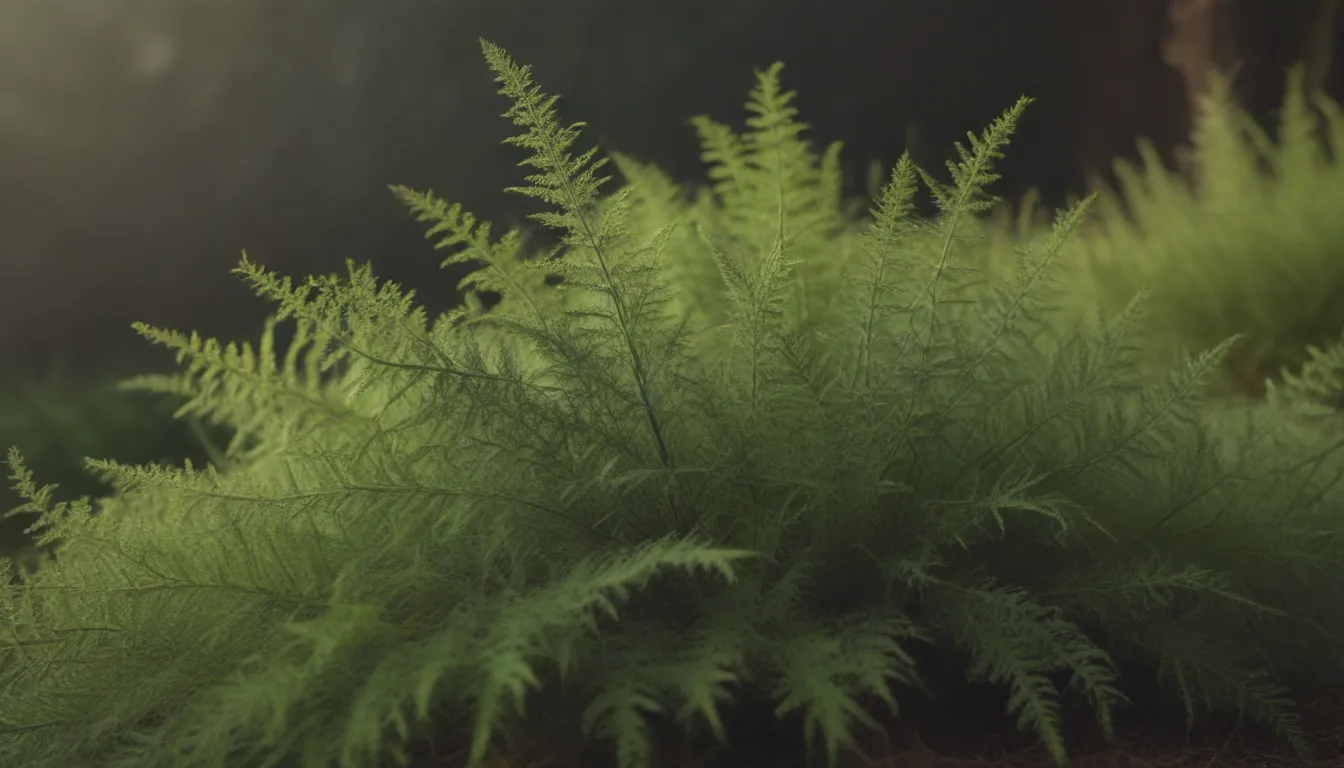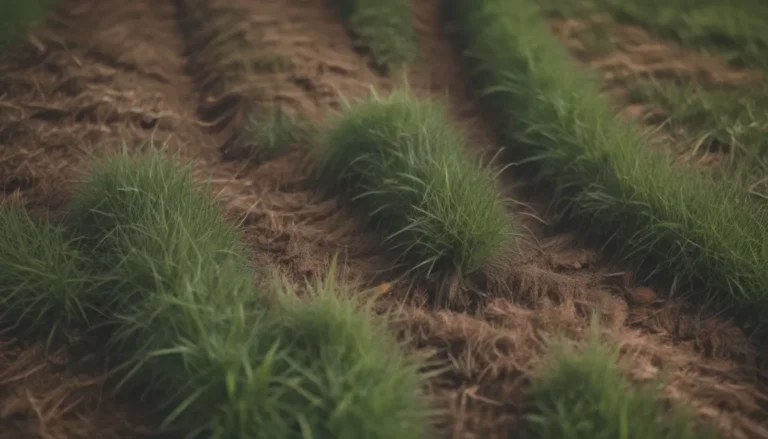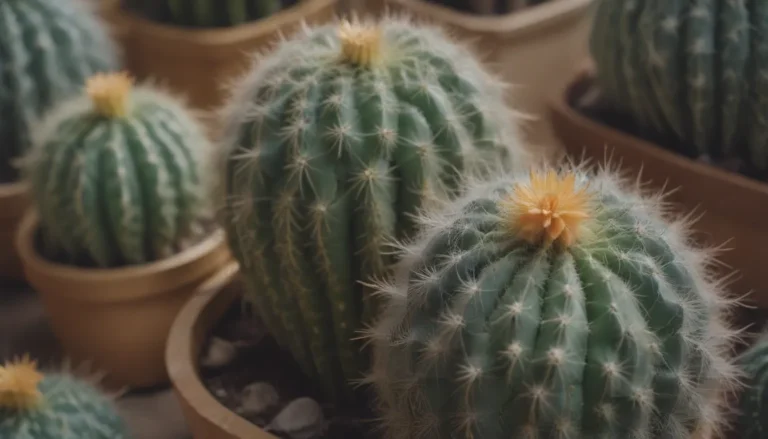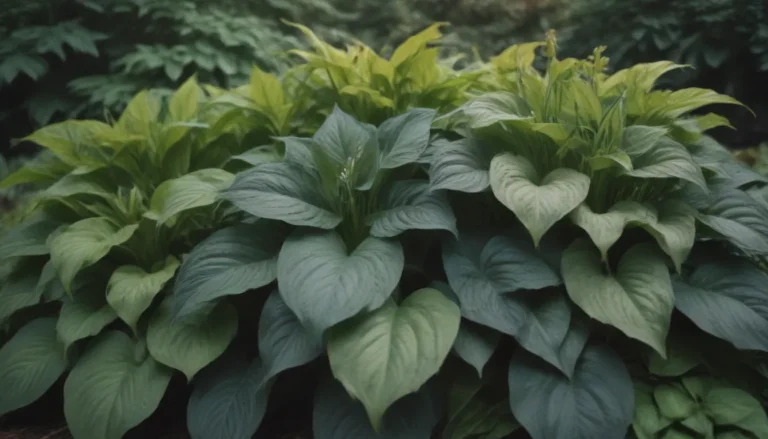Comprehensive Guide on Growing and Caring for Asparagus Fern

Are you looking to add a touch of lush greenery to your indoor or outdoor space? Asparagus ferns might just be the perfect plant for you! Although they’re not actually ferns, these warm-weather perennials are closely related to the common edible garden asparagus. With their bright green, feathery-textured foliage, asparagus ferns can make a lovely addition to any home or garden.
Understanding Asparagus Fern
The asparagus fern comes in several species, with the most common ones being A. densiflorus and A. aethiopicus. A. densiflorus is often grown outdoors, while A. aethiopicus is typically kept as a houseplant. These plants are known for their attractive lace-like foliage, making them popular choices for both indoor and outdoor gardening.
Notable Qualities of Asparagus Fern
- Fast-growing nature
- Ideal for mixed containers or hanging baskets
- Hardy in zones 9 to 11
However, it’s essential to note that in warm, humid climates, asparagus ferns can spread rapidly when planted outdoors, potentially becoming invasive. Always check with your local extension agent before planting them in your area.
Care Tips for Asparagus Fern
Whether you’re growing asparagus fern indoors or outdoors, proper care is crucial for the plant’s health and overall growth. Here are some essential care tips to keep your asparagus fern thriving:
Light
- Asparagus fern thrives in dappled shade
- Avoid direct, bright sunlight to prevent foliage scorching
Soil
- Plant in loose, well-drained soil rich in nutrients
- Outdoors, slightly acidic soil works best for optimal growth
Water
- Keep soil consistently moist, but not waterlogged
- Pay extra attention to indoor plants during winter when indoor air tends to be dry
Temperature and Humidity
- Maintain a warm temperature around 70 degrees Fahrenheit
- Avoid drastic temperature changes to prevent leaf drop
Fertilizer
- Feed with a water-soluble, all-purpose plant food diluted to half strength
- Adjust fertilization frequency based on seasons and plant growth
Types of Asparagus Fern
Asparagus ferns come in various cultivars, each with its unique characteristics. Some popular cultivars include:
– ‘Myeri’
– ‘Sprengeri’
– ‘Sprengeri Compacta’
– ‘Nana’
Pruning and Propagating Asparagus Fern
Keeping your asparagus fern well-groomed is essential for its overall appearance and health. Regular pruning can help maintain its shape and address any brown or overgrown areas. Additionally, propagating asparagus ferns is a straightforward process that involves dividing the tuberous roots.
How to Grow Asparagus Fern From Seed
If you’re interested in starting asparagus ferns from seeds, here’s a simple guide to follow:
– Harvest seeds from ripe berries
– Scarify and soak seeds before planting
– Ensure seeds receive ample light for germination
Potting and Repotting
Asparagus ferns are fast growers, so regular repotting is necessary to prevent root binding. Divide the plant into clumps during repotting to encourage healthy growth.
Overwintering
When temperatures drop below 55 degrees Fahrenheit, bring potted asparagus ferns indoors. Maintain bright light and moderate moisture levels to keep the plant healthy during the winter months.
Common Pests and Plant Diseases
Watch out for common pests like spider mites, aphids, and mealybugs, which can affect your asparagus fern. Treat infestations promptly with insecticidal soap to prevent further damage.
Dealing With Common Problems
If you notice yellowing or dropping leaves on your asparagus fern, address the issue promptly to prevent any long-term damage. Yellow leaves can indicate pests, over-fertilization, or inadequate light exposure. Dropping foliage is often a result of inconsistent watering, so adjust your watering schedule accordingly.
In conclusion, asparagus ferns are versatile plants that can thrive both indoors and outdoors with the right care and maintenance. By following the guidelines provided in this comprehensive guide, you can ensure your asparagus ferns remain healthy and vibrant for years to come. So go ahead, add a touch of greenery to your space with these lovely and easy-to-care-for plants!





